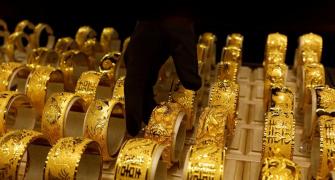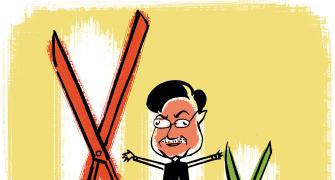Gifts are, however, not taxable only when the person receives it from close relatives, which includes relatives such as parents, spouse, siblings, siblings of the spouse etc, points out Tinesh Bhasin.

It's good to have a considerate employer who gives a bonus or gift for Diwali, but the onus of paying tax on the gifts lies on the employee.
Gifts from an employer to employee is taxable as perquisites if their value is more than Rs 5,000.
The Rs 5,000 limit is for an entire financial year.
It means the total value of all gifts and bonuses should be below the threshold for them to be tax-free.
"If the employer doesn't deduct tax at source, the employee will need to declare the gift under the head "salaries" in the income tax return (ITR) form," says Preeti Khurana, a chartered accountant with ClearTax.com.
The recipient employee needs to get the fair market value of the gifts and pay tax on them based on his tax slab.
As an employee, there is some relief if you receive gifts from a business contact in a personal capacity.
Explains Naveen Wadhwa, a chartered accountant with Taxmann.com: "If you strictly go by what is covered under the income-tax section that deals with gifts (Section 56), only specified items received in personal capacity are taxable."
It means, gifts such as electronic gadgets that are typically offered during festival season from one person to another, are not taxed.
Under the definition of property, the section covers seven taxable items, which include immovable property, shares and securities, jewellery, archaeological collections, drawings and paintings, sculptures, and any work of art.
The gift also has to be without any consideration.
If your returns are selected for scrutiny, the tax officer can question the intention behind the gift as expensive gifts are usually not given without consideration.

For professionals such as chartered accountants, doctors, lawyers, and interior decorators things differ.
If they receive a gift from clients, customers or patients, most likely, it will be considered as gifts received in a professional capacity.
Section 28 of the Income Tax Act lays down what is taxed as business income.
It states that the value of any benefit or perquisite, whether convertible into money or not, arising from business or the exercise of a profession will be taxed.
The professional will need to calculate the fair market value of the gifts and add them to the business income.
The logic to tax gifts received in a professional capacity is to ensure that there is no tax avoidance.
According to tax experts, if they are not taxed, professionals can take expensive gifts from clients instead of fees.
But if a professional can demonstrate that the gift received is in a personal capacity, then they won't need to pay tax on popular gifted items such as electronic gadgets.
If a person receives gifts which are in the specified list, he will need to declare it under the head "income from other sources" when filing returns and pay tax on it.
It is true even if it is from a friend or distant relative.
Gifts are, however, not taxable only when the person receives it from close relatives, which includes relatives such as parents, spouse, siblings, siblings of the spouse, and so on.










